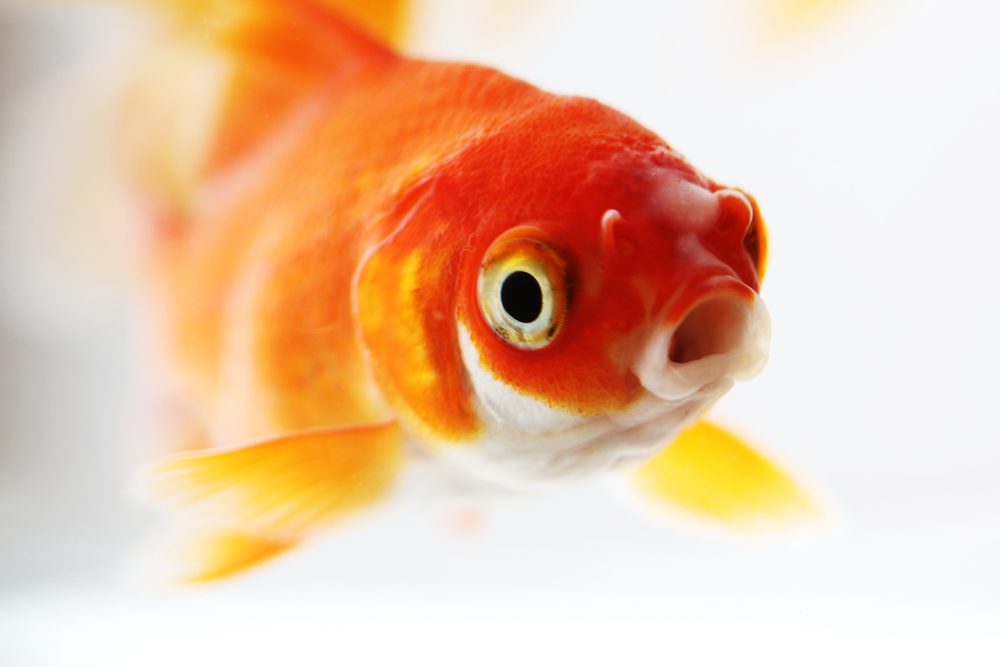It’s your first goldfish, and you’re nervous. What kind of tank does it need? How many fish will he eat? Can it survive without an aerator? When I bought my first goldfish, I had no idea what I was doing.
There are some things about owning a goldfish that I wish I would have known before buying my first one.
This article will tell you everything you need to know about caring for your new fishy friend.
- 1 1- Is Goldfish Tank Size Important?
- 2 2- Are Goldfish Smart?
- 3 3- Can They Live With Other Types of Fish?
- 4 4- You Need Two or More Goldfish in Your Fish Tank
- 5 5- How to Introduce Goldfish to Your Aquarium?
- 6 6- How to Take Care of Your Goldfish?
- 7 7- How Often Should I Feed My Goldfish?
- 8 8- What Kinds of Foods are Good for Goldfish?
- 9 9- How Often Do I Really Have to Change Goldfish Water?
- 10 10- Do Goldfish Smell Bad?
- 11 11- Goldfish Poop a Lot
- 12 Our Final Advice
1- Is Goldfish Tank Size Important?
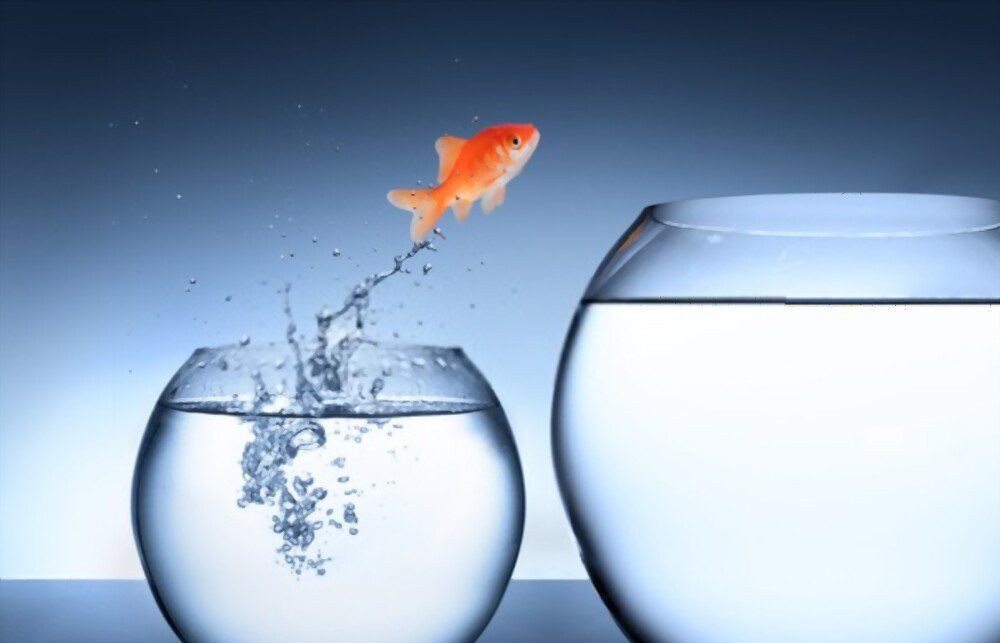
When you’re buying goldfish, it’s best to consider the size of the aquarium before you buy. Goldfish are some of the most popular fish for home aquariums, and there are many reasons why. They are beautiful, relatively low maintenance, and fun to watch. However, one thing that is necessary when caring for goldfish is a large enough tank to house them!
The reason that size is so important is that goldfish are actually very large fish! Goldfish can grow up to six inches in length, which means they need a lot of room. In addition, they produce a lot of waste because they eat so much food. This combination means they need an aquarium that provides plenty of space to grow and plenty of water to dilute their waste.
2- Are Goldfish Smart?
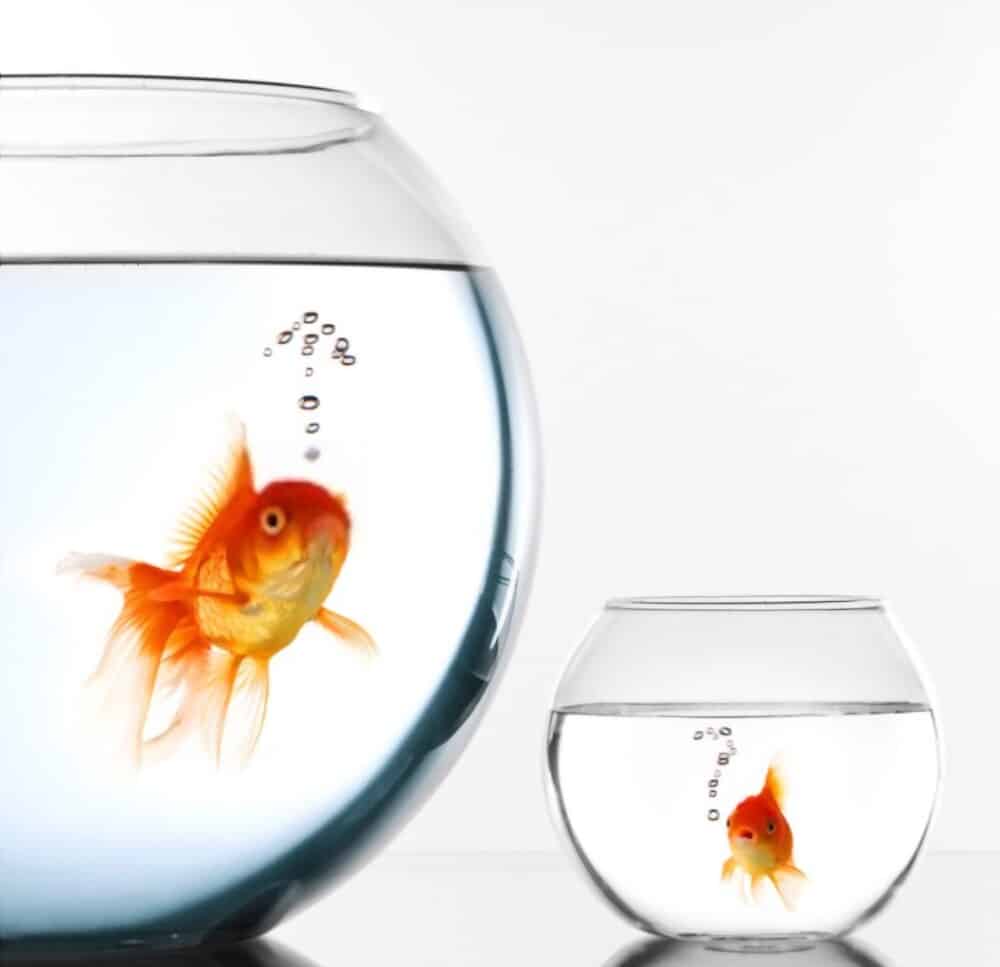
Goldfish are popular pets and are often kept in a bowl or an aquarium. But are these fish actually smart?
It seems that no one has studied the intelligence of goldfish.
Goldfish don’t have to be very smart because they don’t face many challenges in their environment, according to Dr. Culum Brown, a biologist at Macquarie University in Sydney, Australia.
“They’re not under any evolutionary pressure to be particularly bright,” he told Live Science. “All they need to do is eat and avoid being eaten.”
But this doesn’t mean that they’re stupid, Brown said. Goldfish can get used to humans feeding them or tapping on the glass of their tank, he said. And they have some impressive abilities: A goldfish was able to navigate a maze after just a few tries, according to a study published in 2013 in the journal Animal Cognition.
Goldfish can also recognize individual people’s faces, and remember them for months, according to a separate study published in 2011 in the journal Learning & Behavior. They could even distinguish between happy and angry human faces.
3- Can They Live With Other Types of Fish?
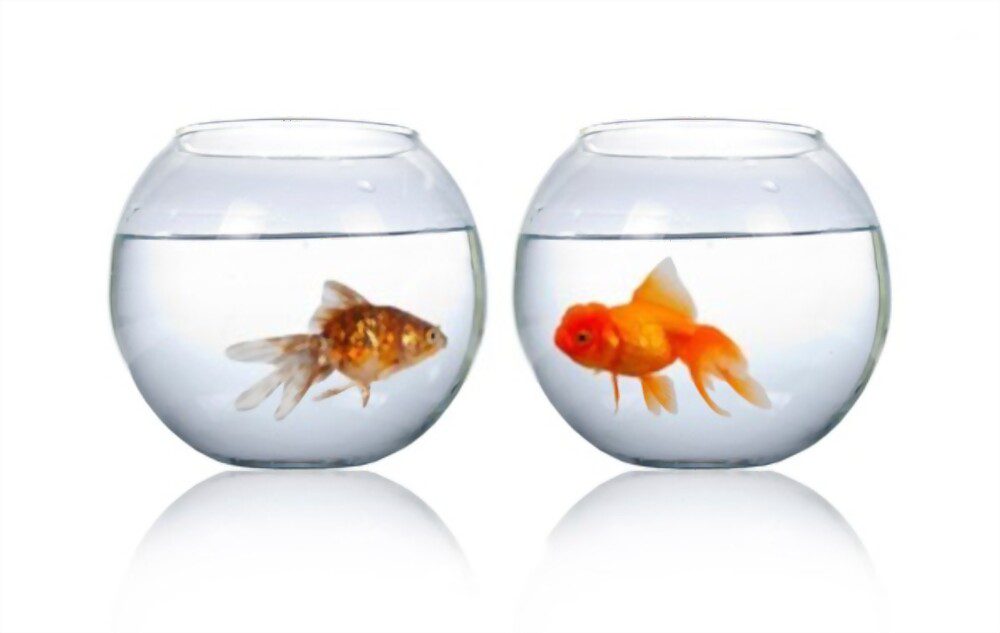
Usually not, unless you have a very large aquarium. This is largely because of their size and feeding habits.
Goldfish are active swimmers and need lots of room to swim around. They can grow up to six inches in length and need an aquarium that’s 20 gallons or larger. They also produce a lot of waste from their food and gills. This can cause water quality problems if it’s not removed regularly through partial water changes.
Goldfish are omnivores, but they have a strong tendency to eat all the food that enters the aquarium before other fish get a chance to eat it. This means that goldfish can starve other fish to death if kept in a small tank with other types of fish. That said, goldfish kept in an appropriately-sized aquarium with larger fish might fare better, since the other fish should be able to get enough to eat without worrying about the goldfish eating it all first!
4- You Need Two or More Goldfish in Your Fish Tank
It’s not a good idea to keep just one goldfish. Single goldfish tend to live shorter lives than those that are kept in pairs. They can also become depressed and inactive if kept alone. If you’re going to get a goldfish, it’s best to get another one so they can be friends and keep each other company.
The goldfish is the only fish that doesn’t need a partner to reproduce; however, for optimum health and overall happiness, two or more goldfish should be purchased at the same time.
Goldfish in pairs or groups tend to live longer than those who are kept alone. The average lifespan of a single pet goldfish is roughly 10 years, but those who are raised with at least one friend tend to live up to 15 years or more.
Goldfish living with at least one other goldfish tend to be healthier, happier and live longer than their lonely counterparts. This is because they have someone else of their own species around to befriend, which helps them feel more comfortable and secure in their environment.
5- How to Introduce Goldfish to Your Aquarium?
Today, we’re going to learn how to introduce Goldfish to your aquarium.
The first thing you want to do is obtain your fish. There are plenty of pet stores that carry a wide assortment of healthy and vibrant fish.
Next, you will want to pick out a good size tank for your new fishy friend. A good rule of thumb is one gallon of water per inch of fish.
Once you have selected the perfect tank for your fish, fill it up with dechlorinated water. Dechlorinated water can be purchased at your local pet store or can be made at home by simply mixing tap water with a chemical that removes chlorine and chloramines from the water.
You will want to make sure there is an adequate amount of hiding spaces in your tank as well as proper aeration and filtration equipment.
Now place the bag containing your new friend into the water, removing as much air from the bag as possible before securing the top closed. Allow your new friend to acclimate for about 15 minutes before opening the bag and netting them into their new home.
Congratulations! You are now a proud owner of a beautiful new fish!
6- How to Take Care of Your Goldfish?
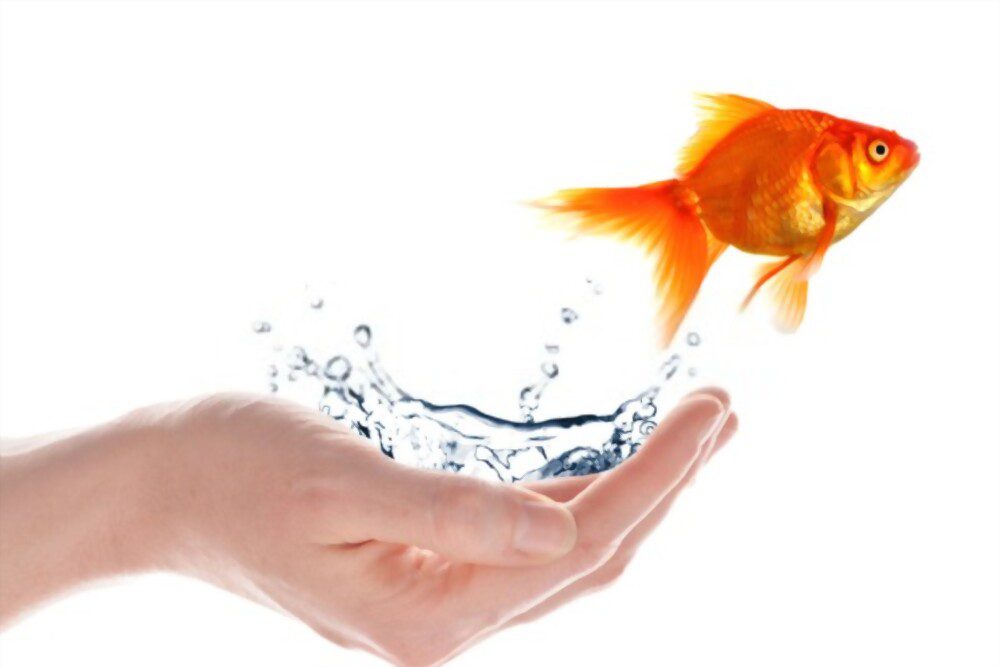
Goldfish are one of the most popular aquarium fish because they’re pretty to look at and generally easy to maintain. However, there are a few things you should know before you get your first goldfish.
Goldfish need at least 10 gallons (37.9 L) of water per fish, so if you’re planning on having more than 1 goldfish in your aquarium, purchase an aquarium that can accommodate them (the bigger the better!).
Ideally, you want to keep your water between 68-74 degrees Fahrenheit (20-23 degrees Celsius). This is best accomplished with a heater and thermometer. You do not need a filter system or air pump for goldfish. They don’t produce as much waste as other fish, but it’s still important you keep their water clean.
7- How Often Should I Feed My Goldfish?
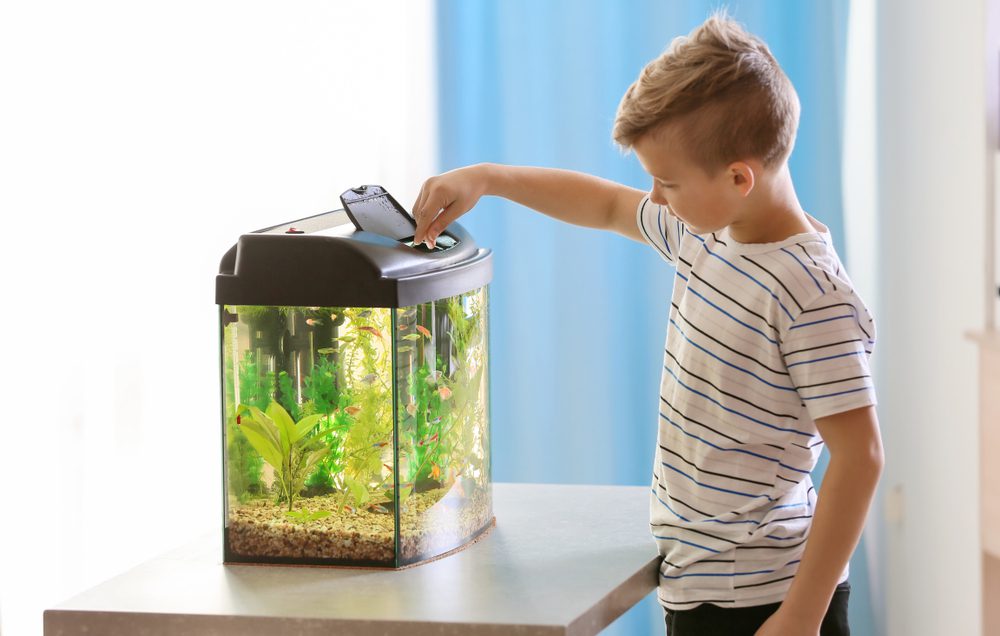
Feeding goldfish is relatively simple. Feed them once daily with a high quality pellet or flake food – but only feed them as much food as they can eat in 2 minutes! It’s common for well-meaning pet owners to overfeed their fish, which can lead to bloating and constipation.
8- What Kinds of Foods are Good for Goldfish?
The best diet for goldfish includes some type of commercial flake food, along with live or frozen foods such as blood worms, brine shrimp, or daphnia. These foods should be alternated daily, giving your fish variety so they don’t become bored with the same food every day. However, if you do alternate the types of food you give the fish, it’s important to make sure that the source of protein in each type of food is different. For example, if you feed brine shrimp one day and blood worms the next day, you will want to pick one with a different source of protein as the third choice.
Some goldfish owners also feed their pets live food like mosquito larvae and daphnia, which can be grown in a home aquarium or bought at pet stores. Many fish will happily eat small insects found around the house, including fruit flies
It is also important not to overfeed them as this can cause digestive issues and make them more likely to develop swim bladder disease.
9- How Often Do I Really Have to Change Goldfish Water?
The idea that you don’t need to change all of the water in a goldfish tank, just a portion of it, has been around for decades. The idea is that it’s not the water itself that’s bad for fish, but the buildup of waste and other harmful materials in the tank, so if you remove some of the water and replace it with fresh water, you’re diluting those harmful materials.
The truth is that this can work in some situations. For example, if you have very small goldfish (1 or 2 inches long) with one or two fish per gallon of water, partial water changes may be enough to keep them from getting sick. But as your fish grow and their waste increases, the amount of freshwater you have to add to get rid of harmful materials increases.
For example, if you have two 2-inch goldfish and 25 percent of the water volume in your tank is replaced each week (and none during the rest of the week), you’ll need to replace almost 50 percent every week once they reach 4 inches. If they reach 8 inches, you’ll need to replace them almost 100 percent every week!
10- Do Goldfish Smell Bad?
I have been in the fish business for more than 25 years, and I can tell you that like so many other aspects of the pet industry, there are a lot of myths and misconceptions floating around when it comes to goldfish.
“Goldfish Smell Bad” is one of those myths. If your fish is kept in a clean environment, the only thing you will smell is freshwater. True, if you put your nose right up to the water’s surface, you might get a little whiff of something, but that is just because the water contains some oxygen and sometimes a tiny bit of ammonia.
The reason goldfish can be smelly is that they are usually kept in dirty conditions with too many fish in too small an aquarium or bowl. This creates a build-up of harmful toxins like ammonia and nitrite. These chemicals come from waste materials in the water that is produced by the fish themselves and their leftover food — which can easily pollute the water if not removed regularly.
11- Goldfish Poop a Lot
If you’re considering goldfish as pets, be aware that they poop a lot. So much so, in fact, that you may want to consider picking up an extra aquarium filter (or two).
The reason goldfish are so prolific in their defecations is because of their digestive systems. Goldfish have what’s called a “complete digestive tract” that includes a stomach and intestines. This means they use all of the nutrients in the food they eat and they don’t need to eat as often as fish with an incomplete digestive tract (like the betta) do.
Another reason goldfish poop a lot is because they’re big eaters. A fish who eats more will necessarily have to poop more. When you add it all up, you end up with a lot of waste and a very dirty tank!
Our Final Advice
Goldfish are hardy creatures, but they do not tolerate neglect. If you don’t pay attention to their needs and requirements, your goldfish will likely get sick and die. Also, give them plenty of toys and treats (in moderation) and make sure that the tank is cleaned with fresh water on a regular basis. An ounce of prevention will save you a ton of expense in the long run and keep your goldfish happy and healthy for years to come.

